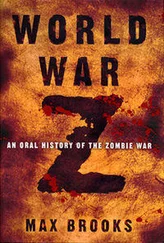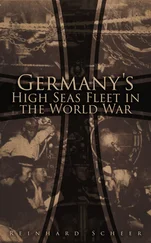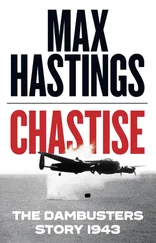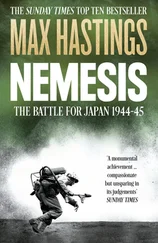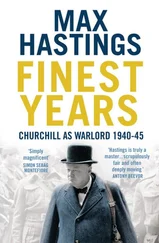1 ...7 8 9 11 12 13 ...16 Regina Lempicka was one of hundreds of thousands of Poles arbitrarily arrested by the Russians during the months that followed, then shipped to Kazakhstan. Her grandmother and baby niece died of starvation during their exile, while her soldier brother was shot. The family experience in Russian hands, she wrote later, became ‘a ghastly dream’. As one group of Polish soldiers was marched over a border bridge by Red Army guards, a prisoner said bleakly: ‘We enter Russia. We shall never return.’ Tadeusz  ukowski wrote: ‘From this instant the whole world seemed to change: different sky, soil and people. A weird feeling, as if something cracked inside you had burst open, as if life left you and you suddenly dropped into a dark cave, a pitch-dark underground passage.’ A woman said contemptuously to a Polish prisoner on his way to the gulag, ‘You Polish, fascist lords! Here in Russia you will learn how to work. Here you will be strong enough to work but too weak to oppress the poor!’
ukowski wrote: ‘From this instant the whole world seemed to change: different sky, soil and people. A weird feeling, as if something cracked inside you had burst open, as if life left you and you suddenly dropped into a dark cave, a pitch-dark underground passage.’ A woman said contemptuously to a Polish prisoner on his way to the gulag, ‘You Polish, fascist lords! Here in Russia you will learn how to work. Here you will be strong enough to work but too weak to oppress the poor!’
Around 1.5 million Poles, mostly civilians evicted from their homes in the forfeited east of their country during the months that followed, began an ordeal of captivity and starvation in Soviet hands, which cost the lives of some 350,000. Many such families were without menfolk, because these had been summarily dispatched. On 5 March 1940, the Soviet Union’s security chief Lavrenti Beria sent a four-page memorandum to Stalin, proposing the elimination of Polish senior officers and others defined as leaders of their society. Those held in Soviet camps, urged Beria, should be subjected to ‘the use of the highest means of punishment – death by shooting’. Stalin and other members of the Politburo formally approved the recommendation to decapitate Poland. During the weeks that followed, at least 25,000 Poles were murdered by NKVD executioners at various Soviet prisons, each receiving a single bullet in the back of the head. The bodies were then buried in mass graves in the forests around Katyn west of Smolensk, at Minsk and other sites, the largest of which was discovered by the gleeful Nazis in 1943.
Later allegations that the post-1945 Allied war crimes trials represented ‘victors’ justice’ were powerfully reinforced by the fact that no Russian was ever indicted for Katyn. In October 1939 a Pole under interrogation by NKVD officers demanded bitterly: ‘How is it possible for the USSR, a progressive and democratic state, to be on friendly terms with a reactionary Nazi Germany?’ His inquisitor replied coldly: ‘You are wrong. Our policy is at present to be neutral during the struggle between England and Germany. Let them bleed – our power will increase. When they are utterly exhausted, we shall come out as the strong and fresh party, decisive during the last stage of the war.’ This seems a just representation of Stalin’s aspirations.
Hitler, visiting Warsaw on 5 October, gestured to the ruins and addressed accompanying foreign correspondents: ‘Gentlemen, you have seen for yourselves what criminal folly it was to try to defend this city…I only wish that certain statesmen in other countries who seem to want to turn all of Europe into a second Warsaw could have the opportunity to see, as you have, the real meaning of war.’ Warsaw’s Mayor Starzy ski was removed to Dachau, where he was murdered four years later. The Polish army had lost 70,000 men killed and 140,000 wounded, together with uncounted thousands of civilian dead. The German army’s casualties amounted to 16,000 killed and 30,000 wounded. Some 700,000 Polish soldiers became Hitler’s prisoners. An unelected Polish exile government was established in London.
Britain’s Chief of the Imperial General Staff, Gen. Sir Edmund Ironside, met Adrian Carlton de Wiart on that officer’s return from Warsaw and snapped dismissively, ‘Well, your Poles haven’t done much.’ This assertion reflected the frustration of British and French hopes that the Polish army would inflict sufficient injury upon the Wehrmacht to alleviate the Western Allies’ need to do so. Carlton de Wiart replied, ‘Let us see what others will do, sir.’ A remarkable number of Poles made the decision to accept exile, separation from everything they knew and loved, in order to continue the fight against Hitler. Some 150,000 made their way westwards, often after memorable odysseys. This was by far the largest voluntary exodus from any of the nations eventually overrun by Germany, and reflected the Poles’ passion to sustain their struggle. Exiles fleeing west were astonished by the warm reception they received in fascist Italy, where a host of people called to them, ‘Bravo Polonia!’
Before quitting his home airfield, fighter instructor Witold Urbanowicz gave a radio and his silk shirts to the woman cleaner of his quarters, his formal evening dress to the porter, then set off by bus with his cadets, down the road to Romania; almost a year later, at the controls of a Hurricane, he became one of the RAF’s foremost aces. Some 30,000 Poles, one-third of them air force pilots and ground crew, reached Britain in 1940, and more came later. One man clutched a wooden propeller, a symbol to which he had clung doggedly through a journey of 3,000 miles. Many others joined the British Army in the Middle East, after their belated release from Stalinist captivity. These men would make a far more notable contribution to the Allied war effort than had Britain to their own.
Poland became the only nation occupied by Hitler in which there was no collaboration between the conquerors and the conquered. The Nazis henceforth classified Poles as slaves, and received in return implacable hatred. As Princess Paul Sapieha crossed the frontier to precarious safety amid a throng of refugees, her small daughter asked, ‘Will there be bombs in Romania?’ The princess answered, ‘No more bombs now. There’s no war here. We’re going where it will be sunny and where children can play wherever they please.’ The child persisted: ‘But when are we going home to Papa?’ Her mother could not answer. Soon, there would be scarcely a corner of Europe that offered safe haven to either children or adults.
Hitler had committed himself to conquer Poland, but as so often, he had no clear plan for what should follow. Only when it became plain that Stalin welcomed the country’s extinction did Germany’s ruler decide to annex western Poland. Before the war, Nazis liked to dismiss Poland as a ‘Saisonstaat’ – a temporary state. Now, it would cease to be any state at all: Hitler became master of lands containing fifteen million Poles, two million Jews, one million ethnic Germans and two million other minorities. Among his foremost characteristics was a reflexive hatred of all those who opposed his will. This soon manifested itself against the Poles – and especially, of course, against their Jews. One day in Łód soon after the occupation began, Szmulek Goldberg was returning from work when ‘I encountered chaos in the streets. People were running wildly in every direction. Somebody stopped and grabbed my sleeve. “Hide! Hide!” he shrieked. “The Germans are capturing Jews at gunpoint and taking them away on trucks.”’ He watched trucks drive past, loaded with captives, a first earnest of Hitler’s designs upon his race. Within weeks of Poland’s conquest, the first few thousand of its Jewish citizens had been murdered.
In Britain, a mother named Tilly Rice who had been evacuated with her children from London to a fishing port in north Cornwall, wrote on 7 October after the end of the Polish campaign: ‘In the household in which I live the whole thing has been received in bewildered silence…War is still going on, but as something distant with just occasional repercussions on the general lives of the community…My own reactions to the whole situation are growing more and more indifferent every day.’ Britain and France had declared war on Germany to save Poland. Poland was now gone, and Polish representatives were expelled from the Allied Supreme War Council, where they were deemed redundant. Many British and French politicians and citizens demanded: to what end was the war being sustained? How could it be effectively waged? US ambassador in London Joseph Kennedy shrugged to his Polish counterpart: ‘Where on earth can the Allies fight the Germans and beat them?’ Though Kennedy was a shameless anglophobe, appeaser and defeatist, his question was valid, and the Allied governments had no good answer to it. After the fall of Poland, the world waited in bewilderment to discover what might follow. Since France and Britain lacked stomach to seize the initiative, the further course of the war waited upon the pleasure of Adolf Hitler.
Читать дальше
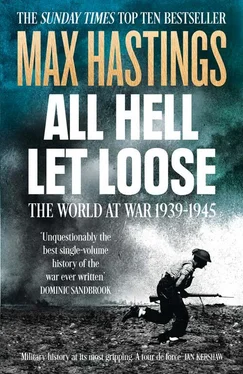
 ukowski wrote: ‘From this instant the whole world seemed to change: different sky, soil and people. A weird feeling, as if something cracked inside you had burst open, as if life left you and you suddenly dropped into a dark cave, a pitch-dark underground passage.’ A woman said contemptuously to a Polish prisoner on his way to the gulag, ‘You Polish, fascist lords! Here in Russia you will learn how to work. Here you will be strong enough to work but too weak to oppress the poor!’
ukowski wrote: ‘From this instant the whole world seemed to change: different sky, soil and people. A weird feeling, as if something cracked inside you had burst open, as if life left you and you suddenly dropped into a dark cave, a pitch-dark underground passage.’ A woman said contemptuously to a Polish prisoner on his way to the gulag, ‘You Polish, fascist lords! Here in Russia you will learn how to work. Here you will be strong enough to work but too weak to oppress the poor!’